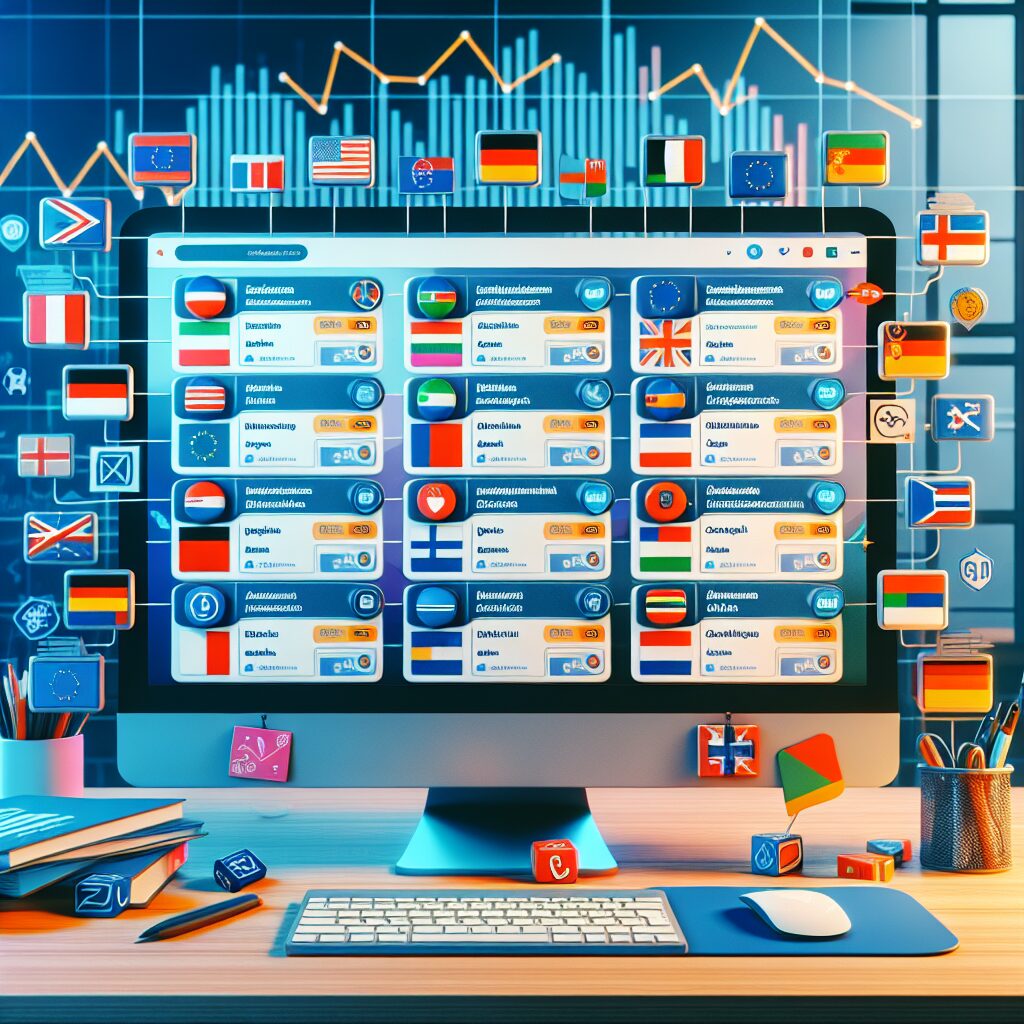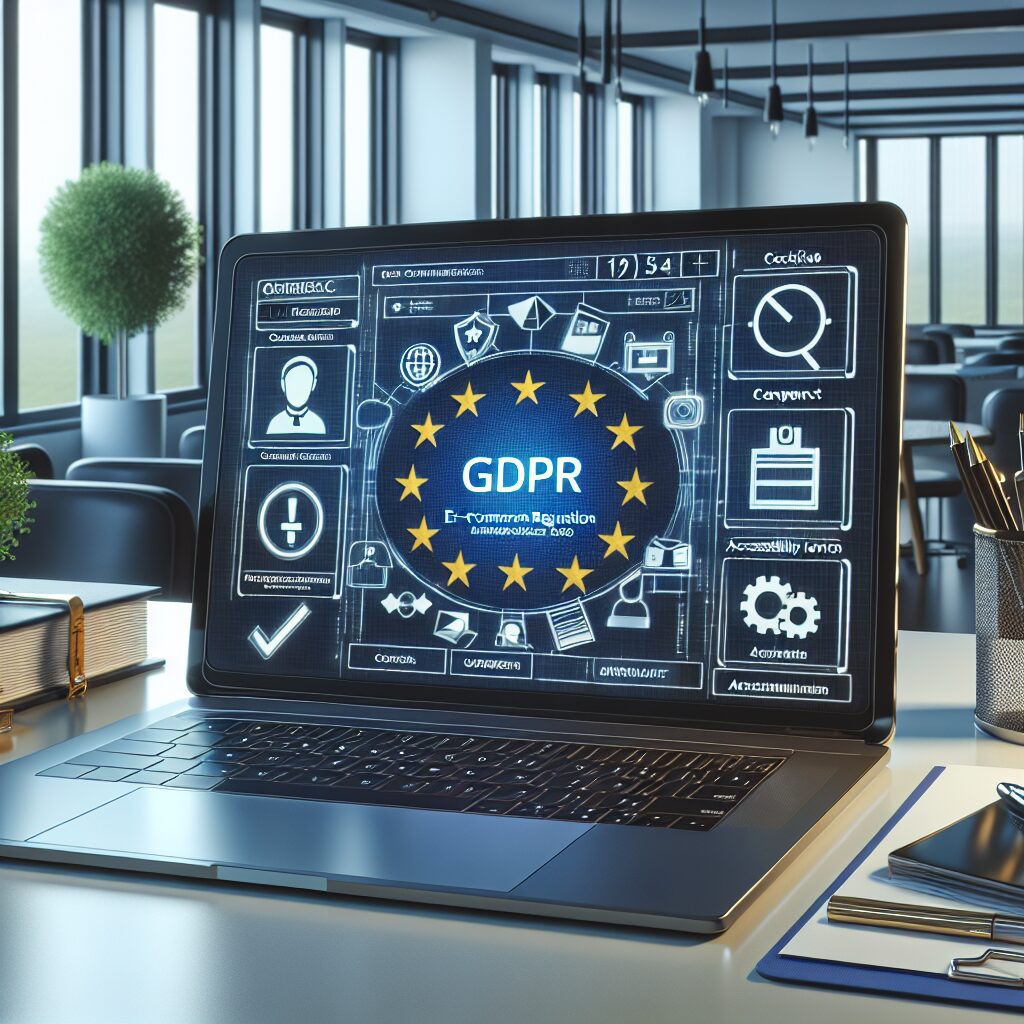About eldris
At Eldris, we automate SEO, multilingual site expansion, and EU compliance for brands scaling across Europe. Our AI-powered platform handles everything from content publishing to regulatory docs—so you don’t have to.
In This Article
- AI compliance solutions enable proactive, real-time management of regulatory obligations.
- They automate legal review, monitor risk continuously, and translate complex regulations into actionable insights.
- Industries from finance to healthcare are already benefiting from faster, more accurate compliance frameworks.
- Successful implementation depends on phased adoption, robust governance, and full organisational buy-in.
- Building trust in AI systems requires transparency, ethical guidelines, and robust cybersecurity practices.
- The future of compliance lies in integrated, dynamic, and AI-driven systems that adapt in real time.
The Rise of AI in Compliance
Why Now Is the Right Time
The increasing complexity and volume of global regulatory requirements have made compliance more challenging than ever. Organisations are turning to AI compliance solutions to navigate this regulatory minefield with greater agility and accuracy. From GDPR to evolving financial and healthcare regulations, the demand for scalable, intelligent systems is pressing. AI enables businesses to respond if not proactively prepare for these challenges by automating routine tasks, enhancing risk detection, and ensuring more robust oversight.
With global fines for non-compliance soaring into the billions, investing in AI-driven technologies is not just a luxury—it’s becoming a necessity. The convergence of unprecedented data generation, cloud-native infrastructure, and machine learning advancements has finally matured to a point where regulatory technology (RegTech) can offer viable, scalable, and cost-efficient solutions.

Key Compliance Challenges Today
The Burden of Evolving Regulations
Compliance teams are under strain. Legislation is being updated at a speed that traditional systems cannot keep pace with. Regulatory bodies worldwide frequently revise existing rules, introduce new mandates, and enforce harsher penalties for non-compliance. Keeping up with these changes across jurisdictions is a daunting task without technological augmentation.
Manual processes remain widespread, consuming valuable human resources and increasing the likelihood of oversight. Furthermore, the complexity of interpreting legal language introduces additional risk, especially when organisations operate internationally.
“Compliance is no longer a static checkbox activity—it’s a dynamic, ongoing process that demands innovation and adaptability.” — Chief Risk Officer, Top 100 UK Bank
How AI Transforms Regulatory Monitoring
AI compliance solutions play a pivotal role in transforming how businesses interact with ever-changing legal requirements. Natural language processing (NLP), a branch of AI, can parse dense regulatory texts to extract actionable obligations. These tools analyse multiple sources—laws, guidelines, regulatory updates—and transform them into structured formats for compliance teams to act upon.
For instance, machine learning models can detect semantic changes between different versions of the same law, assess their impact on business practices, and trigger alerts automatically. This results in quicker implementation of new controls or policy updates across departments. Moreover, the ability of AI tools to translate global regulations into local context ensures accurate interpretation tailored to specific operational needs.
Automating Legal Review with Machine Learning
One of the most powerful applications of AI compliance solutions lies in document analysis and intelligent contract review. Legal departments are utilising AI to screen agreements for conflicts, identify risky clauses, and verify language against approved templates. What previously took days can now be reduced to hours—or even minutes—through intelligent automation.
AI-driven legal tech allows firms to maintain consistency across documents, flag anomalies, and ensure regulatory alignment across vendor contracts, client agreements, and internal policies. By integrating these tools into e-discovery and case management, organisations gain a detailed digital audit trail, thus boosting transparency during compliance audits.
Real-Time Risk Management Through AI
AI compliance solutions also offer significant advantages in risk management. By continuously analysing real-time data streams across operations, AI systems can detect deviations from expected patterns and escalate potential fraud or policy breaches immediately. Whether it’s suspicious financial transactions, unusual data access, or regulatory violations, businesses can intervene before issues escalate into major incidents.
Predictive models, based on historical data and contextual analysis, help prioritise enforcement actions by assessing the likelihood and potential impact of risks. This predictive capacity empowers teams to focus on what matters most—proactive resolution rather than reactive firefighting.
Top AI Compliance Tools to Know
Several emerging tools are redefining what compliance looks like in the AI era. GPT-powered compliance assistants, like those developed by major RegTech firms, offer real-time query resolution and contextualised regulatory advice. Popular platforms such as Relativity Trace facilitate automated surveillance in financial institutions, flagging insider trading and communication breaches.
AI document automation tools like ContractPodAi or Luminance specialise in enhancing legal review procedures. Meanwhile, platforms such as Ascent extract precise regulatory obligations and translate them into workflows. Many GRC (Governance, Risk, and Compliance) solutions have also embedded AI modules, offering integrated dashboards that unify compliance operations end-to-end.
It’s crucial to choose the right tool not just for its features but also for its interoperability with existing systems. Interfacing cleanly with CRMs, ERP platforms, and data warehouses ensures that compliance initiatives are embedded within enterprise-wide processes.
Industry Use Cases: Finance, Health, E-Commerce
Different industries are harnessing AI compliance solutions in unique ways. In the financial sector, regulators like the FCA demand greater scrutiny over transactions, communications, and reporting. AI tools aid banks in flagging anomalies in trade data and generate reports aligned with MiFID II and anti-money laundering standards.
Healthcare institutions employ AI compliance platforms for HIPAA/GDPR enforcement, safeguarding patient data while ensuring audit readiness. Natural language understanding enables classification of sensitive healthcare data, ensuring it remains protected across complex data-sharing ecosystems.
Meanwhile, e-commerce companies benefit from AI compliance systems for consumer data privacy, especially in light of regulation like the UK’s Data Protection Act and EU’s Digital Services Act. Automated cookie consent managers, data erasure triggers, and global localisation functionality help digital retailers maintain compliance without interrupting their customer experience.
Implementing AI in Your Compliance Workflow
To adopt AI compliance solutions effectively, companies must begin with a comprehensive mapping of their existing compliance processes. Understanding where bottlenecks and risks reside enables targeted deployment of technology. It also ensures that automation augments human oversight without creating blind spots.
Implementation should occur in phases. Start with high-volume, low-risk tasks—such as monitoring regulatory changes or initial document reviews. Then, expand to more mission-critical areas like real-time transaction monitoring or contract lifecycle management. Continuous training of both AI models and the human workforce is essential to maximise long-term value.
Equally important is the collaboration between compliance officers, technologists, and legal experts to ensure ethical application of AI. Establishing governance frameworks upfront, complete with performance benchmarks and data transparency protocols, will mitigate risks down the line. For a deeper dive, see Learn more about AI-Driven Regulatory Compliance.
Overcoming Trust and Security Concerns
Despite its advantages, the adoption of AI in compliance invites questions surrounding trust, explainability, and data governance. Many organisations hesitate to delegate decisions to ‘black box’ algorithms, especially concerning sensitive legal contexts. Building trust requires transparency in AI decision-making, robust audit logs, and human-in-the-loop models that verify machine output.
Moreover, secure deployment practices are essential. AI models must comply not only with data privacy regulations but also with cybersecurity standards like ISO/IEC 27001. Encryption, access control, and frequent penetration testing are non-negotiable.
Data bias is another critical concern. If not properly managed, it can affect AI judgement accuracy and legal fairness. Ongoing validation, diverse training datasets, and accountability protocols must be in place to avoid ethical pitfalls. Resources such as AI-driven risk and compliance insights provide excellent guidelines for trustworthy AI deployment.
The Future of AI Compliance
The role of AI compliance solutions will continue evolving as regulatory frameworks mature and AI capabilities advance. Emerging technologies like federated learning, which enables model training across encrypted datasets without sharing raw data, could become vital for cross-border regulation. AI will also play an increasingly proactive role in shaping future regulations, acting as a data-driven advisor to policymakers and corporate leaders.
As global businesses seek more unified compliance strategies, interoperable AI systems may become standard. Open-source platforms and collaborative regulatory sandboxes could further break down siloes between corporations and regulatory bodies.
Firms preparing now will establish a competitive advantage, as those unable to scale AI in compliance workflows risk falling behind. Forward-thinking companies are already adapting internal structures to support AI fluency across departments. Learn more about enterprise readiness in Read a related article.
Key Takeaways for Decision-Makers
Conclusion: Moving Toward Agile Compliance
AI compliance solutions are transforming how organisations approach regulation in a digital-first, globalised world. By reducing human error, increasing response speed, and offering continuous insights, AI is not just a tool for compliance—it’s a catalyst for corporate resilience and adaptability. As regulators grow more tech-savvy and expectations rise, businesses must align with intelligent, agile approaches to remain competitive and compliant. The path forward requires vision, investment, and a commitment to merging technology with ethical, human oversight. Those who act now will lead in tomorrow’s compliance landscape.
Great guide on fast-tracking-compliance-ai-solutions-for-the-modern-world – Community Feedback
How does AI help companies fast-track compliance?
AI automates regulatory monitoring, reduces manual tasks, and swiftly adapts to new compliance requirements, helping companies stay ahead of changes.
What industries benefit most from AI compliance solutions?
Financial services, e-commerce, healthcare, and any highly regulated sector can significantly benefit from AI-powered compliance automation.
Is AI compliance software secure and reliable?
Leading AI compliance platforms use robust security protocols and regular audits, ensuring regulatory data is managed securely and reliably.








